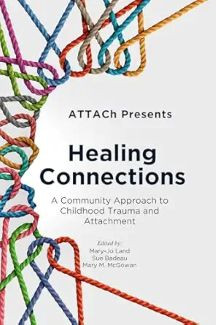-
 Healing Connections is an essential guide for professionals and caregivers working with children who have complex needs stemming from early trauma, losses, or involvement in the child welfare system. This updated resource builds on prior foundational knowledge to deliver contemporary tools and practices tailored to today's diverse families, including foster and adoptive families. By incorporating insights from a wide range of experts, the book reflects a multi-systemic approach that addresses collective trauma and the crucial role of belonging and community in healing. Aligning with the latest evidence-based practices, Healing Connections emphasizes the importance of staying informed about recent research and advancements in the field. Whether you're a caregiver or a professional supporting children and youth, this book provides valuable knowledge and practical resources to enhance your understanding and effectiveness. Healing Connections aims to enlighten and equip you with essential strategies to foster healing and growth in children facing significant challenges.
Healing Connections is an essential guide for professionals and caregivers working with children who have complex needs stemming from early trauma, losses, or involvement in the child welfare system. This updated resource builds on prior foundational knowledge to deliver contemporary tools and practices tailored to today's diverse families, including foster and adoptive families. By incorporating insights from a wide range of experts, the book reflects a multi-systemic approach that addresses collective trauma and the crucial role of belonging and community in healing. Aligning with the latest evidence-based practices, Healing Connections emphasizes the importance of staying informed about recent research and advancements in the field. Whether you're a caregiver or a professional supporting children and youth, this book provides valuable knowledge and practical resources to enhance your understanding and effectiveness. Healing Connections aims to enlighten and equip you with essential strategies to foster healing and growth in children facing significant challenges.
